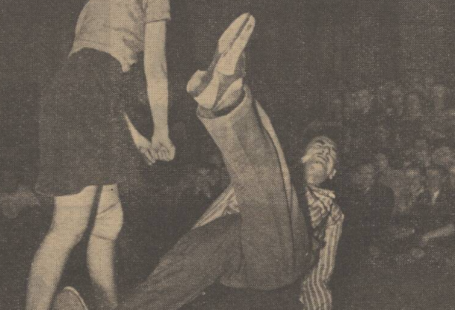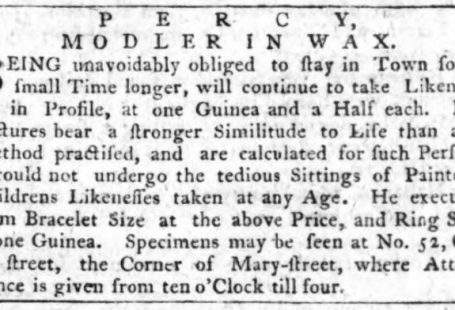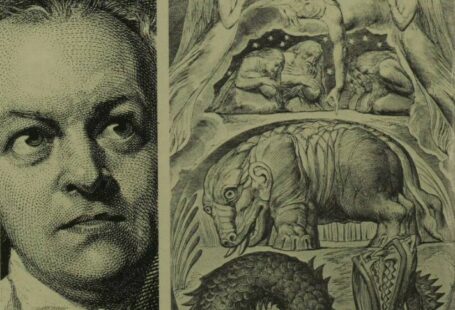
In the first of a new occasional series we’re talking to author Richard Tomlinson, whose latest book Amazing Grace: The Man who was W.G, was partly researched using the Archive. We talked about his research techniques and how digital searches can uncover extraordinary detail about famous lives.
In Amazing Grace, Tomlinson has painted a picture of a sporting celebrity and a complex man with fresh insights into some of the contradictions that made up the cricketing hero. He told us that the ability to search collections digitally had made a huge difference to his research.
“A lot of what you want to find out about W.G. Grace, this incredibly famous late Victorian celebrity, was physically inaccessible before because you would have to go to the library at Colindale and wade through endless copies of the Western Daily Press, the Bristol newspapers generally, the London papers, and you still wouldn’t get beyond the match reports.”
He explained that these days you can use a mix of digitised archives and original records to build a far more complete picture.
For example, Grace attended Ridgway House School in the Gloucestershire village of Stapleton, not Rudgway House school, as was previously assumed. The misunderstanding arose from a contemporary biographer, a friend of Grace’s, who misheard the detail, creating a myth that Grace was educated in a village school, a bit of a “duffer”. But a search on the BNA for the Rev. Henry Malpas, headmaster of Ridgway House School in Stapleton reveals something else entirely – Malpas advertised each year.
“If you look at the curriculum that the Reverend Malpas, (M.A. Oxon) was offering, it certainly wasn’t for duffers – it was a proper academic curriculum. It’s a small example but quite an important one, because you can use search terms with this wonderful search engine that the British Library has got, to find things like that and establish what the facts are. A whole window is opened on a side of Grace’s life that you didn’t know about before.”
Tomlinson gave another example from later in Grace’s life when he was working as a Poor Law doctor in Bristol. It could be difficult to find anything in the original records, if they were accessible at all, but full reports of the Barton Regis Board of Guardians meetings were published in the Western Daily Press and the other Bristol newspapers.
“So you have this wonderful record going right the way through Grace’s time as a doctor in Bristol in the 1880s and 1890s, and from there you can discover all sorts of interesting things about Grace as a doctor. The fact that he was constantly getting into trouble for hiring locums during the cricket season to look after the surgery while he was playing cricket. The Board of Guardians were very, very exercised about this. He put in for pay rises, and we know how much he actually wanted to be paid.”
Tomlinson stressed that, to get the best results, it was important to know what you were looking for. With the explosion in the number of newspapers after the abolition of stamp duty and a celebrity of Grace’s stature you would get tens of thousands of results for a simple name search. However, filtering the results using non sporting terms could throw up fascinating insights. Match reports, as well, were far more reliable that sporting memoirs – if you could find the good ones. It was these match reports that gave a blow by blow account of one of the most notorious games Grace ever played in.
“This was a game in 1870 between the MCC and Nottinghamshire, where a Nottinghamshire batsman was killed by a ball bowled by an MCC bowler. There is a very, very long detailed report of this game in the Nottinghamshire Guardian and it goes on for thousands of words. I had never, ever seen it in any other cricket book and it may be lurking somewhere but I certainly hadn’t come across it in any of the mainstream literature but there it is and again you can find it very easily on the British Library database.”
Without these pieces of information, Tomlinson told us, his book simply would not be the same. Coming from a history background though, he cautioned that newspapers had to be approached in the same spirit as any other source.
“You have to know where the writer is coming from. I mentioned the Nottinghamshire Guardian but the writer was obviously biased in favour of the Nottinghamshire team and we take that on board but that’s no different from going into an archive and reading correspondence. It’s just basic common sense really but it certainly uncovered large areas of Grace’s life that people have not written about before in any of this depth or detail.”
“It operates on two levels, you can get fantastic bits of information like how much he was paid as a poor law doctor. It also opens vistas on other aspects of his life that nobody knew about or if they did they didn’t know them in detail.”
Amazing Grace: The Man who was W.G. by Richard Tomlinson
Amazing Grace: The Man who was W.G. is published by Little, Brown and available from all good book shops. You can also win a copy in our Facebook giveaway.





